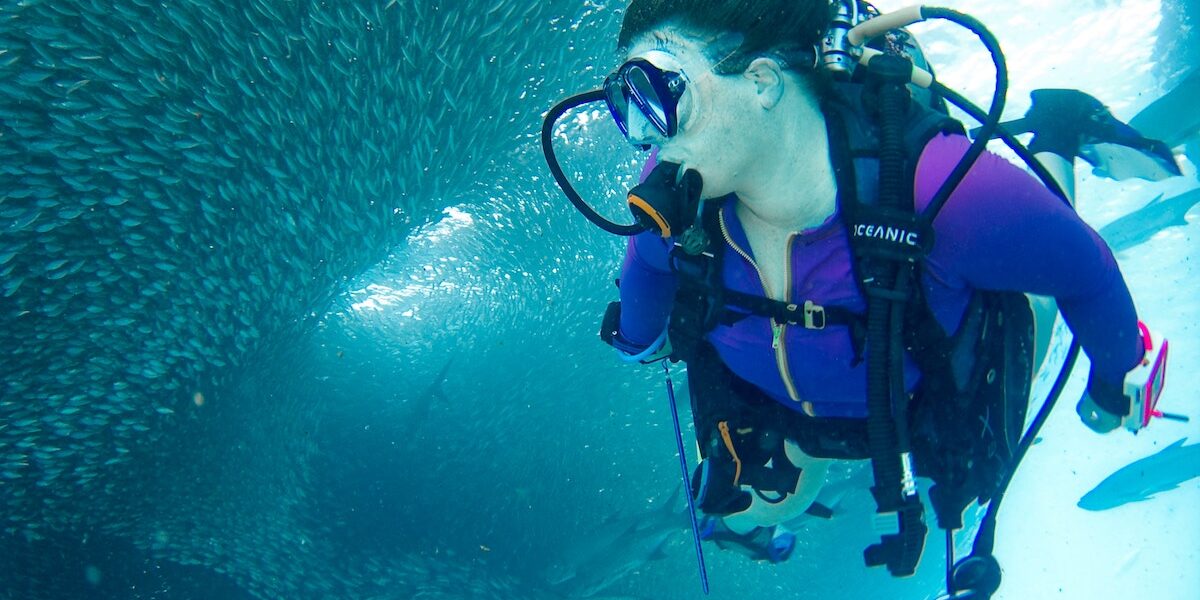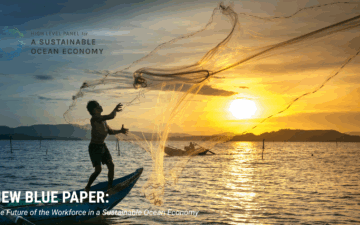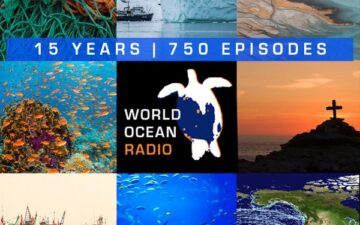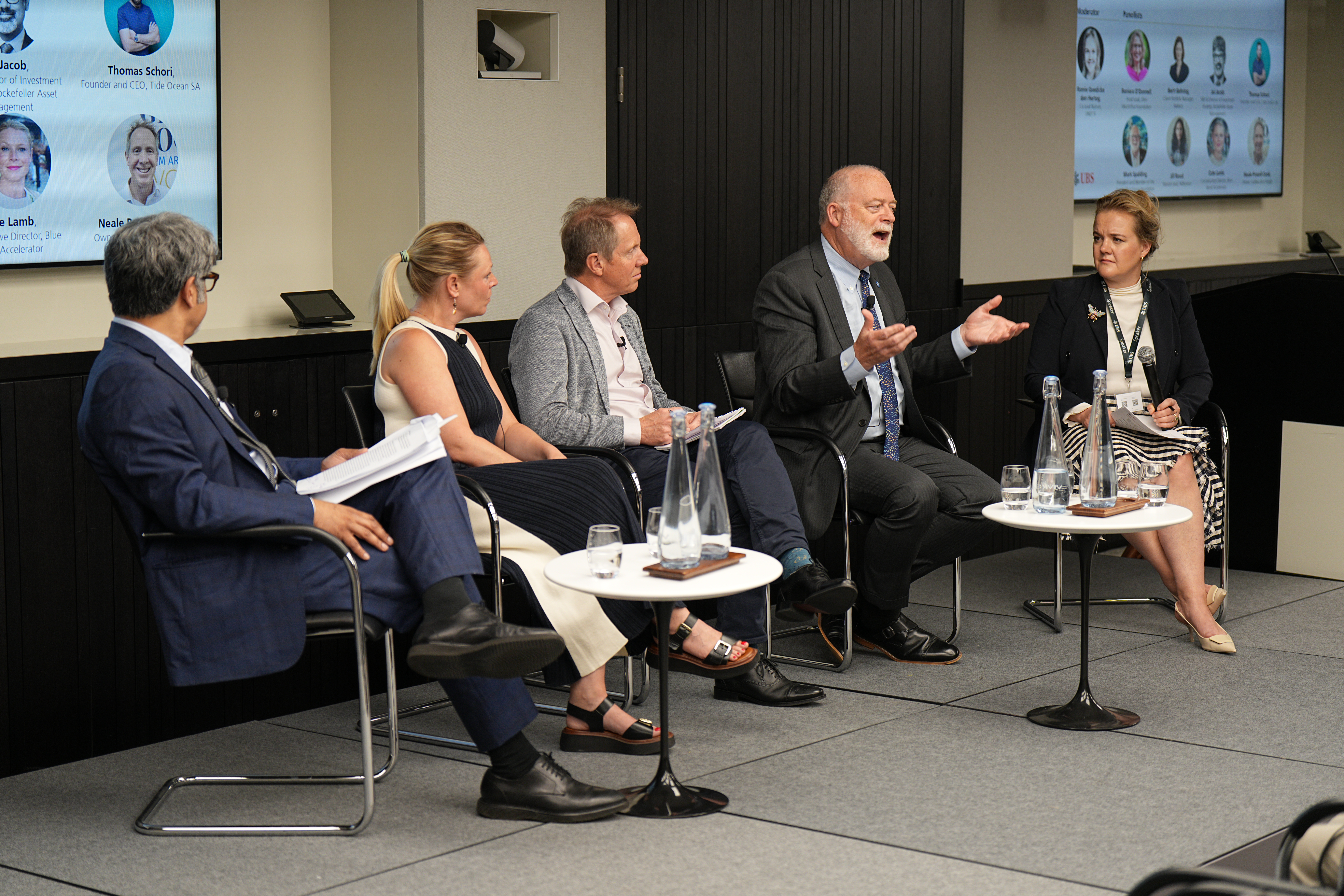by Jessie Neumann, Communications Assistant
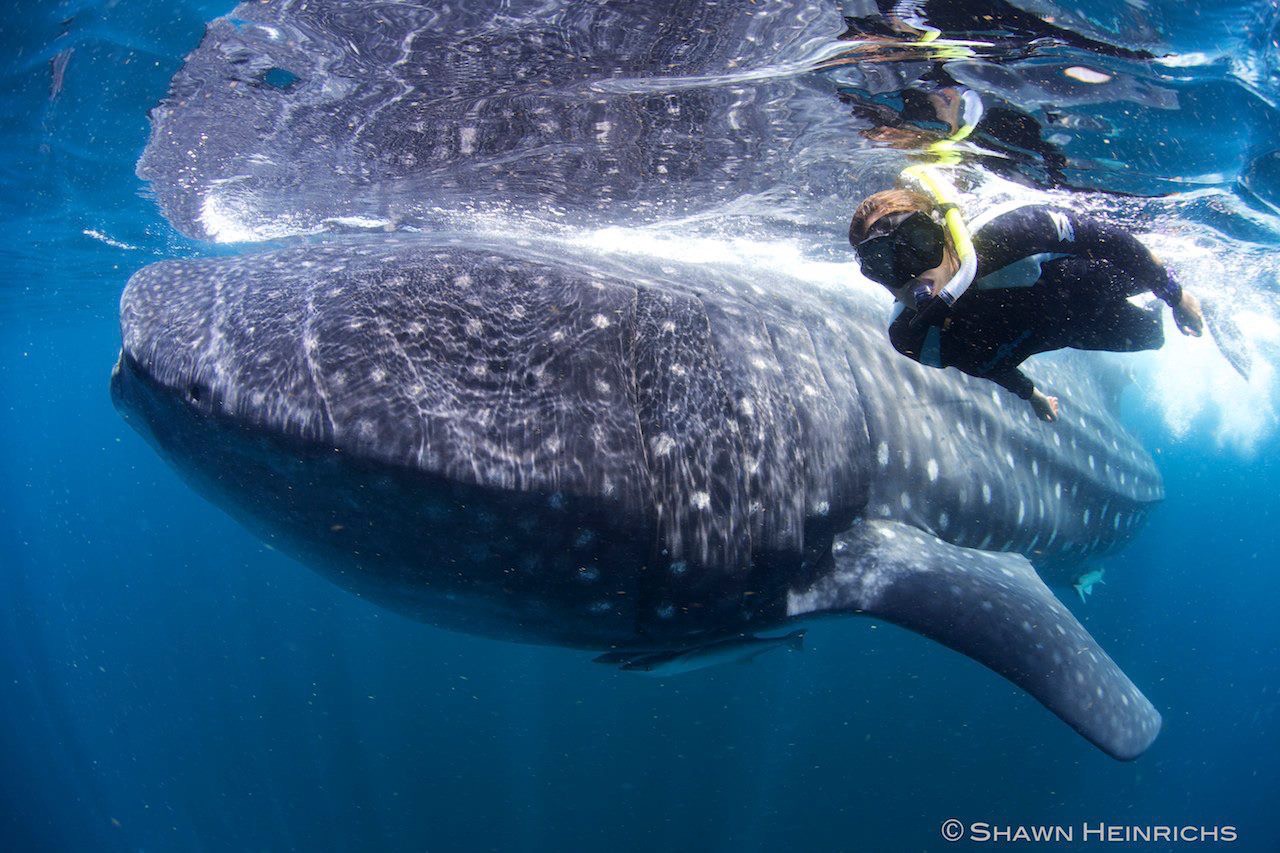
To wrap up Women’s History Month, we bring you Part III of our Women in the Water series! (Click here for Part I and Part II.)We are honored to be in the company of such brilliant, devoted and fierce women, and to hear about their amazing experiences as conservationists in the marine world. Part III leaves us with excitement for the future of women in marine conservation and empowered for the important work that lies ahead. Read on for guaranteed inspiration.
If you have any feedback or questions about the series, use #WomenintheWater & @oceanfdn on Twitter to join in the conversation.
Read a version of the blog on Medium here.
What attributes of women make us strong in the workplace and in the field?
Wendy Williams – In general women are more likely to be deeply committed, passionate and focused on a task when they put their mind to it. I think when women decide something they care deeply about, they are able to accomplish amazing things. Women are able to work independently in the right situation, and be leaders. We have the ability to be independent and not need affirmation from others…Then it’s really just a question of women feeling confident in those leadership roles.
Rocky Sanchez Tirona– I do think that our empathy and ability to connect with the more emotional aspects of an issue allow us to uncover some of the less obvious answers.
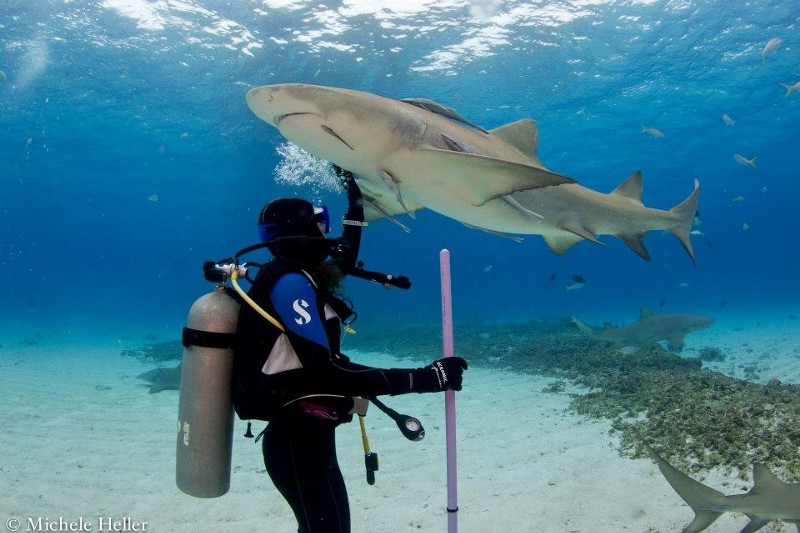
Erin Ashe – Our ability to manage multiple projects at once, and move them forward in parallel, make us valuable assets in any endeavor. Many of the marine conservation problems that we face aren’t linear in nature. My female scientific colleagues excel at that juggling act. Generally speaking, men tend to be more linear thinkers.. The work that I do – carrying out the science, the fundraising, the communication about the science, planning the logistics for field projects, analyzing the data and writing the papers – it can be challenging to keep all those elements progressing. Women also make great leaders and collaborators. Partnerships are key to solving conservation problems, and women are brilliant at looking at the whole, at problem solving, and at bringing people together.
Kelly Stewart – In the workplace, our desire to work hard and participate as a team player is helpful. In the field, I find women quite fearless and willing to put in time and effort to make the project go as smoothly as possible, by participating in all aspects from planning, organizing, collecting and entering data as well completing projects with deadlines.
Anne Marie Reichman – Our drive and motivation to put a plan into action. It must be in our nature, running a family and getting things done. At least this is what I have experienced working with some successful women.
How do you think marine conservation fits into gender equality globally?
Kelly Stewart -Marine conservation is a perfect opportunity for gender equality. Women are becoming more and more engaged in this field and I think many have a natural tendency to care about and take action for things they believe in.
Rocky Sanchez Tirona – So much of the world’s resources are in the ocean, certainly both halves of the world’s population deserve a say in how they are protected and managed.
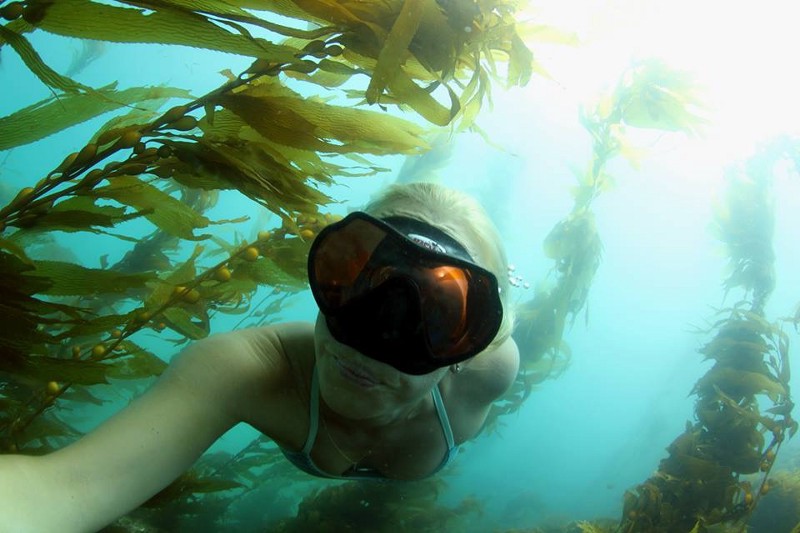
Erin Ashe – Many of my female colleagues work in countries where it is not common for women to work, let alone lead projects and drive boats or go on fishing boats. But, each time they do, and they are successful at making conservation gains and involving the community, they are breaking down barriers and setting a stellar example for young women everywhere. The more women out there doing this kind of work, the better.
What do you think needs to be done to bring more young women into the fields of science and conservation?
Oriana Poindexter – Continuing to focus on STEM education is crucial. There’s no reason a girl can’t be a scientist in 2016. Building a strong math and science foundation as a student is important in order to have the confidence to not be intimidated by quantitative subjects later on in school.
Ayana Elizabeth Johnson – Mentorship, mentorship, mentorship! There is also a dire need for more internships and fellowships that pay a living wage, so a more diverse group of people can actually afford to do them and thereby start to build experience and get a foot in the door.
Rocky Sanchez Tirona – Role models, plus early opportunities to become exposed to possibilities. I thought about taking marine biology in college, but at the time, I didn’t know anyone who was one though, and I wasn’t very brave yet back then.

Erin Ashe – I know from my own experience that role models can make a big difference. We need more women in leadership roles in science and conservation, so that young women can hear women’s voices and see women in leadership positions. Early in my career, I was fortunate to work for women scientists who taught me about the science, leadership, statistics, and the best part –how to drive a boat! I have been fortunate to benefit from many female mentors (through books and in real life) throughout my career. In fairness, I also had great male mentors, and having male allies will be key to solving the problem of inequality. On a personal level, I still benefit from more experienced female mentors. Having realized the importance of those relationships, I am working on seeking out opportunities to serve as a mentor to young women, so I can pass on lessons learned.
Kelly Stewart – I think science naturally draws women, and conservation in particular draws women. Probably the most common career aspiration I hear from young girls is that they want to be marine biologists when they grow up. I think plenty of women are entering the fields of science and conservation but for one reason or another, they may not stay in it long term. Having role models in the field, and being encouraged throughout their career may help them stay.
Anne Marie Reichman – I think education programs should showcase females in the fields of science and conservation. Marketing comes into play there, as well. Current female role models need to take an active role and take time to present and inspire the younger generation.
To young women just getting started in this field of marine conservation, what’s the one thing you want us to know?
Wendy Williams – Girls, you don’t know how different things are. My mother had no right of self determination….Life for women has changed just constantly. Women still do get underestimated to some degree. The best thing to do there… is to just go ahead and do what you want to do. And go back to them and say, “See!” Don’t let anyone tell you you can’t do something you want to do.
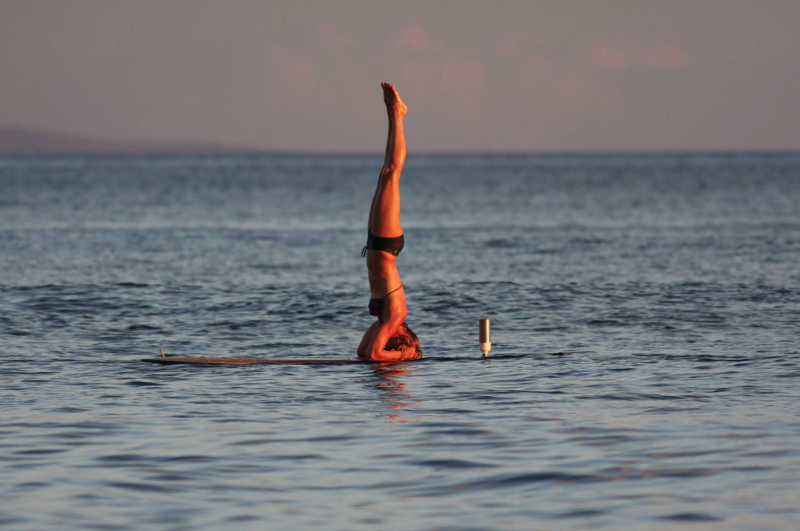
Anne Marie Reichman – Never give up on your dream. And, I had a saying that went like this: Never never never never never never never give up. Dare to dream big. When you find the love and passion for what you do, there is a natural drive. That drive, that flame keeps burning when you share it and remain open to have it reignited by yourself and by others. Then know that things go like the ocean; there are high tides and low tides (and everything in between). Things go up, things go down, things change to evolve. Keep going with the flow of the currents and stay true to what you believe in. We will never know the outcome when we start. All we have is our intention, the ability to study our fields, gather the right information, reach out to the right people we need to and the ability to make dreams come true by working on them.
Oriana Poindexter – Be really curious, and don’t let anyone say “you can’t do this” because you’re a girl. The oceans are the least explored places on the planet, let’s get in there!
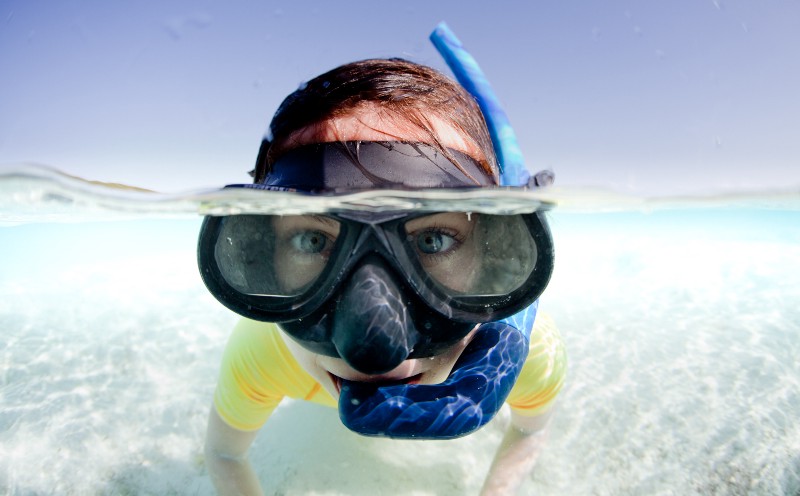
Erin Ashe – At the core of it, we need you involved; we need your creativity and brilliance and dedication. We need to hear your voice. Don’t wait for permission to take a leap and start your own project or submit a piece of writing. Just try. Make your voice heard. Often, when young people approach me to work with our organization, it is sometimes hard to tell what is motivating them. I want to know – what’s the piece that is inspiring and driving your action in conservation? What skills and experience do you already have to offer? What skills are you interested in developing further? What do you want to cultivate? It can be hard early in your career to define these things, because you want to do everything. And yes, we have a lot of different aspects of our non-profit where people could fit in – anything from running events to lab work. So often people say “I’ll do anything,” but if I understood exactly how that person wanted to grow I could mentor them more effectively them and ideally, help them better identify where they want to fit. So think about this: what is the contribution you want to make, and how could you make that contribution, given your unique set of skills? Then, take the leap!
Kelly Stewart-Ask for help. Ask everyone you know if they know of volunteer opportunities or if they might be able to introduce you to someone in the field, in your area of interest. However you see yourself contributing to conservation or biology, policy or management, developing a network of colleagues and friends is the quickest and most rewarding way to get there. Early in my career path, once I got over my shyness at asking for help, it was amazing how many opportunities opened up and how so many people wanted to support me.
Ayana Elizabeth Johnson – Write and publish as much as you can — whether that’s blogs, scientific articles, or policy white papers. Get comfortable with telling the story of the work you do and why, as a public speaker and writer. That will simultaneously help build your credibility and force you to organize and process your thoughts. Pace yourself. This is hard work for many reasons, bias perhaps the most needless of them, so choose your battles, but definitely battle for what’s important for you and for the ocean. And know that you have an amazing group of women at the ready to be your mentors, colleagues, and cheerleaders — just ask!
Rocky Sanchez Tirona – There’s room for all of us here. If you love the ocean, you can figure out where you’ll fit.
Juliet Eilperin – One of the most important things to keep in mind when entering a career in journalism, is that you have to do something you’re passionate about. If you’re truly passionate about the subject and engaged, that comes through in your writing. It’s never worthwhile to focus on an area just because you think it will help advance your career or it’s the right thing to do. That doesn’t work in journalism — you have to be intensely interested in what your covering. One of the most interesting words of wisdom I got when I started on my beat covering the environment for The Washington Post was Roger Ruse, who at the time was head of The Ocean Conservancy. I interviewed him and he said that if I wasn’t certified to scuba dive he didn’t know whether it was worth his time to talk to me. I had to prove to him that I got my PADI certification, and I had actually scuba dived years before, but had let it lapse. The point that Roger was making was if I’m not out there in the ocean seeing what was going on, there was no way I could really do my job as someone who wanted to cover marine issues. I took his advice seriously and he gave me the name of someone who I could do a refresher course with in Virginia and soon after I got back into diving. I’ve always been grateful for the encouragement that he gave me and his insistence that I get out into the field in order to do my work.
Asher Jay – Think of yourself as a living being on this Earth. And working as an earth citizen finding a way to pay rent for your being here. Don’t think of yourself a women, or as a human or as anything else, just think of yourself as another living being that is trying to protect a living system… Do not separate yourself from the overall goal because the minute you a start going into all those political barriers… you stop yourself short. The reason I have been able to do as much work as I do is because I haven’t done it under a label. I have just done it as a living being who cares. Do it as a unique individual that you are with your unique set of skills and specific upbringing. You can do this! No one else can replicate that. Keep pushing, do not quit.
Photo credits: Meiying Ng via Unsplash and Chris Guinness
